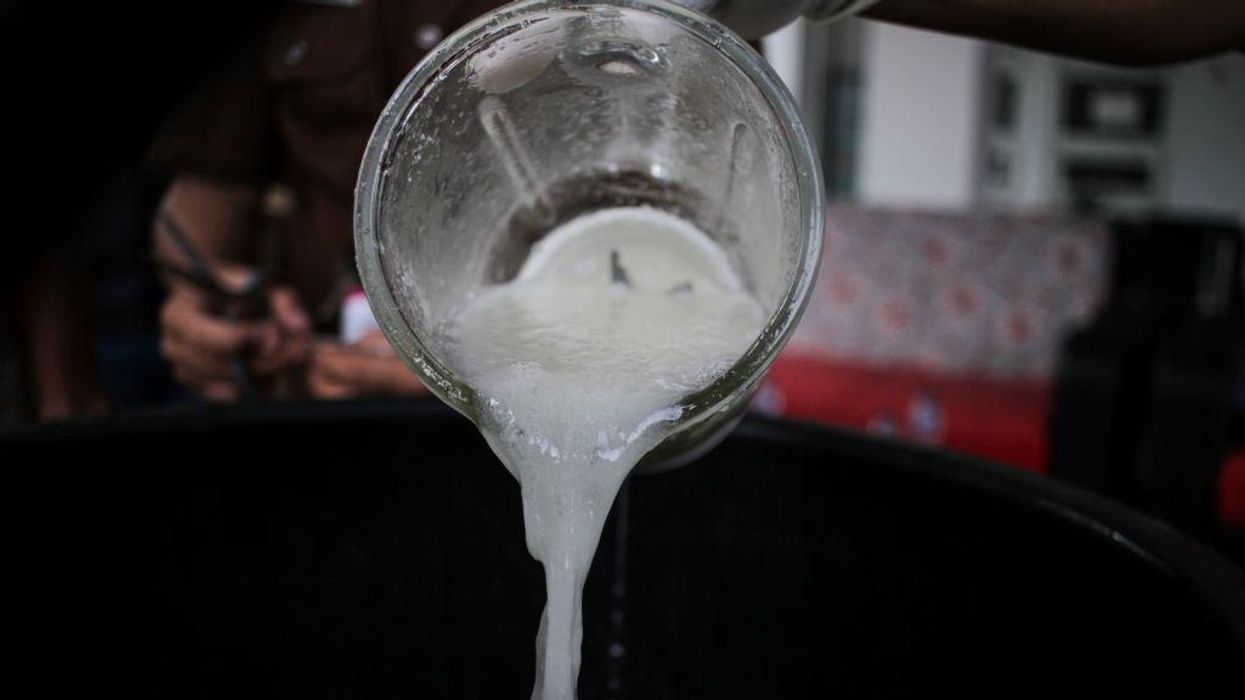
Photo by Fachrul Reza/NurPhoto via Getty Images

A new report released Monday from the Mexican Defense Department indicates that Mexican drug cartels are turning to bigger labs to produce larger quantities of synthetic drugs like meth and fentanyl, and that organized crime elements in China are central to their operations, according to NPR.
Mexican Defense Secretary General Luis Cresencio Sandoval González claims that the rise in the demand for synthetic drugs comes from many cartels' decision to shift from naturally grown drugs like opium and marijuana, the popularities of which are on the decline due to crop seizures and eradication.
Sandoval González said that seizures of fentanyl had seen a dramatic increase of 525%, according to Mexican government statistics compared to years prior. Law enforcement seized 1,232 pounds (559 kilograms) of fentanyl in 2016-2018 and 7,710 pounds (3,497 kilograms) in 2019-2021, according to NPR.
The overall increase in the supply of synthetic drugs like meth and fentanyl is linked to the connection between the Mexican drug cartels and Chinese organized crime, which is instrumental to the importation of illegal drugs. DEA New York City Division Special Agent-in-Charge Raymond Donovan told Newsweek in May that the Chinese are involved at every stage of the drug trade. He explained that he believes the proper solution to the synthetic drug crisis is regulation of the export of ingredients used to make the drugs by the Chinese government.
"I think if the Chinese government said, 'No, we are going to regulate the export of precursor chemicals to Central America,'" Donovan told Newsweek, "you would see an immediate change in America,” Donovan continued.
The rise in synthetic drug consumption is largely due to the ease with which they are created as compared to naturally grown products. Synthetic products enable the cartel to bypass the cost of paying to grow the poppies used in making of opium, according to Sandoval González.
"There was a change in consumption, there was a change in drug markets due to the ease of producing synthetic drugs," Sandoval González said. For example, cartels no longer have to pay farmers to grow opium poppies and painstakingly collect the opium paste that oozes from the bulbs," he said, according to NPR.
Seizures of methamphetamine have also seen a sharp increase over the past three years, rising from 120,100 pounds (54,521 kilograms) seized in 2016-2018 to almost 275,000 pounds (124,735 kilograms) from 2019-2021.
This news comes a little over a month after the largest drug bust of 2020-2021 at the port of entry to Otay Mesa in San Diego, where U.S. authorities discovered over 17,500 pounds of methamphetamine and 389 pounds of fentanyl in a tractor-trailer, according to the Californian News Times